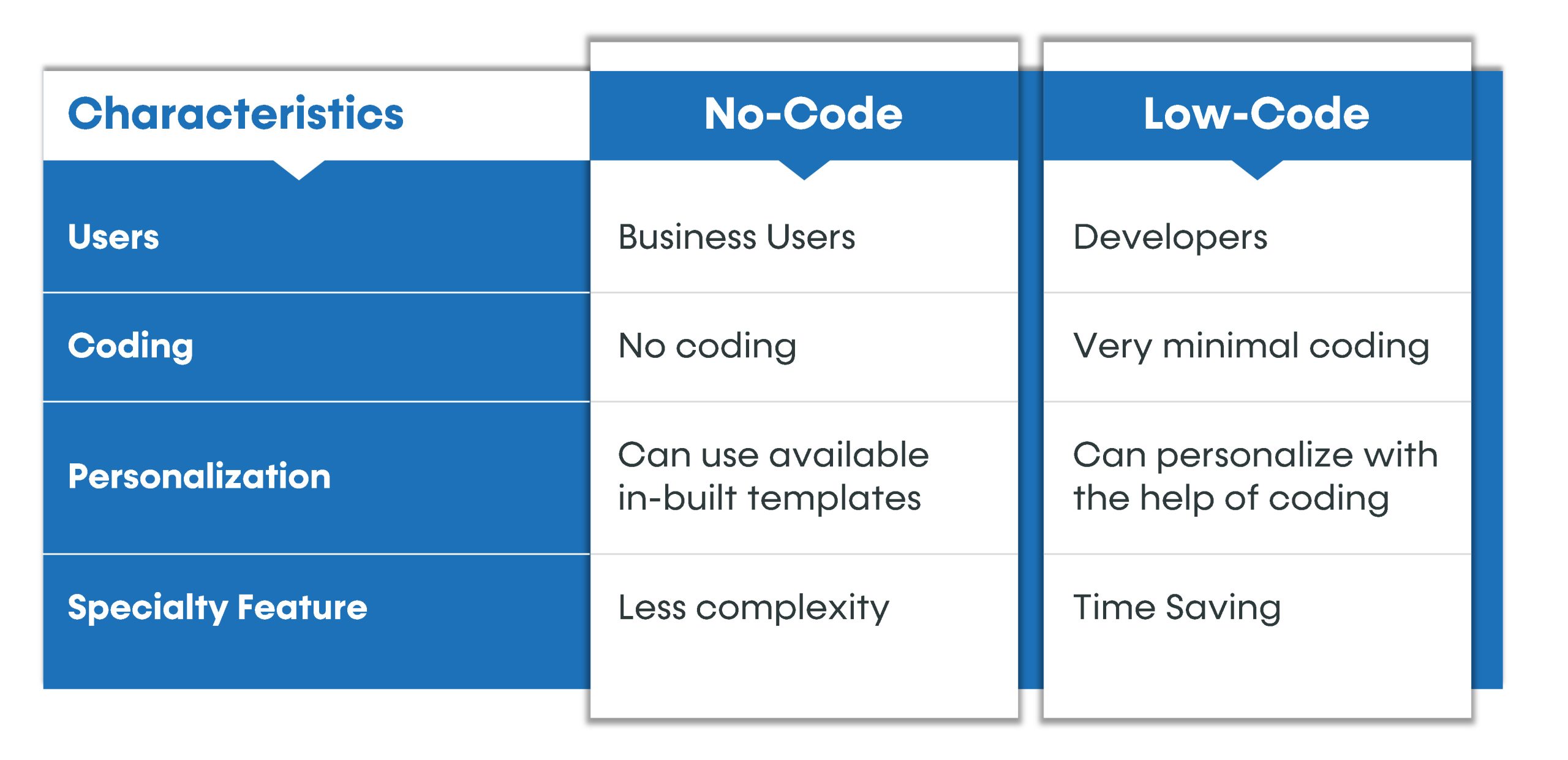Life post covid has been a make-or-break kind of situation for many people. People outside of the IT industry have seen a worst hit experience. Now industries are slowly trying to catch up with all the shortfalls that happened due to pandemic. Catching up with things is no joke. The will power to get back in track can set straight things in no time. For such people who are looking to pounce back in the industry automation is the key. Once the process is automated and streamlined production efficiency is improved thereby saving time. For automation to happen instantaneously low code no code platforms come to use.
What is Low code No code platforms
Low code platform is used by developers of all skill levels to design applications instantly and efficiently with minimum code intervention. A low code platform is like a no code platform with just a small difference where the developer can key in minor codes to make slight modifications here and there.
No code platform is used by anyone including businesspeople who have zero knowledge of coding. Applications are built by simply dragging and dropping visual blocks of existing code into a workflow. A no code platform lets people of different departments try their hands on building simple applications without having to wait for the IT team to come up with a solution.
Difference between Low code and No code


Benefits of Low code
- Saves Time and Increases Productivity:
- Low code platform provides developers the luxury of incorporating prebuilt codes for common functionalities. This way the developers can devote a good amount of time to key features instead of wasting them on general action items. The developer also gets to showcase a fully functional app in a brief period.
- Reduced labor and Cost:
- A low code platform reduces the number of developers who work on a particular project significantly. Work done in the place of 5 humans is replaced by just a simple low code platform and a single developer. Thereby reducing the cost involved in employing the talents. Also, low code platforms help avoid usage of multiple tools for development and amount spent on licenses if any for each tool. Low code platforms are mostly open-source items and include built-in functionality which becomes affordable for many.
- Easy deployment process:
- Low code platforms make the deployment process a cake walk for the developers. The product is taken live by just a single click and hassle free. Isn’t this need of the hour? The most anxious phase in a product life cycle is the deployment stage and that process is made simpler by these platforms. The developers are made free of the deployment stress.
- Improved Cx and Business Agility:
- These platforms contain several predefined functionalities and attributes that make it possible to customize based on the customer needs. These templates are varied to cater to the likes and needs of a range of consumers. These platforms improve business agility because of the flexibility these platforms provide to easily make changes and create newer workflows in a noticeably short time. Business agility in turn leads to scaling the business to higher heights.
Where to use and where not to use
It is advisable to use Low code platforms in the following scenarios –
We can use low code platforms to develop workflow and case management, operator desktops, operational process automation and the like. We can also apply to solution that involves Dynamic change.
This platform is not suited for applications that require changes at the source code level. Apps developed using these platforms may not be able to handle huge voluminous transaction processes. It is also not the right choice for high performing and scalable apps.
To sum it up, low code no code platform can be used by people who absolutely have zero knowledge about coding but want to develop an app or a workflow automation in a short span of time. Impiger is an official Joget partner and takes pride in having developed applications using Joget platform for some of the industries including logistics, insurance, automobile, energy and environment industry and many more. This shows the diversity of industry in which these codes and solutions can be implemented. Now it is time you respond to us through our “Reach out to us” form to discuss the diverse options available to take your application development experience to an all-new level.











